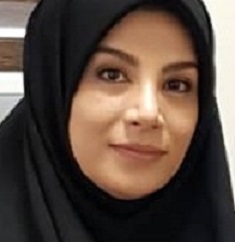Department of Computer
Department of Computer was established in 2011. The Department launched its first Master's degree programme in Computer Science in the fields of "Artificial Intelligence" and "System Design".
In 2018, in partnership with the Iranian Ministry of Science, Research and Technology (MSRT), the Department revised the Computer Science courses. One of the most important requirements in revising the theoretical and practical courses in the field of computer science is to include sufficient information for postgraduate students to continue their studies in related fields, and, in particular, to tailor the courses so as to respond to the needs of the information society. In this regard, the field encompasses an appropriate mixture of courses covering both the theoretical aspects of the discipline and enriching the aspects of science and engineering in different areas of software and intelligent design. br> As of 2018, seven programmes, all under the main field of Computer Science, are provided at Master's level, namely; Soft Computing and Artificial Intelligence, Theory of Systems, Data Mining, Algorithm and Computation, Decision Science and Knowledge, Logic and Formal Methods, and Optimization and Computational Orientation.
Currently, there are seven active faculty members in the Department. The faculty members are offering the latest advances in database systems, software engineering, soft computing, artificial intelligence and machine learning. Students have the opportunity to undertake major design and development projects in areas such as recommended systems, data mining, image processing and computer vision, cloud computing, and applications of blockchains in various systems.
The Department enjoys computing facilities and a modern computing laboratory. In the modern computing laboratory, we have high-performance computing with a state-of-the-art server. The server is equipped with an emergency power system in the form of 16 virtual machines via local and remote (using VPN), 24 hours a day, and non-stop for faculty members and Masters and PhD students. The 16 virtual machines include 14 Windows- and 2 Linux-powered computers. Several general tools and computational applications are installed on each computer.
Degree Programmes
Below, the programmes offered in the Department of Computer are introduced and specified.
Masters Degree Programmes
Computer Science
Data Science
Bachelors Degree Programmes (BSc)
Computer Engineering
Master's Degree Programmes (MSc)
Below, the seven masters degree programmes approved by the Iranian Ministry of Science, Research, and Technology to be offered in the ATU Department of Computer are introduced. Attention should be made that only the first two programmes, namely the "Soft Computing and Artificial Intelligence" and the "Theory of Systems" are currently active and offered in the department. Provision of the other five programmes will be considered by department members and acknowledged in the same webpage in the future.
- Soft Computing and Artificial Intelligence: This programme aims at educating people with the ability to implement intelligent and automated systems. These people can work in specific areas such as intelligent and expert systems, robot control, machine vision (processing, analyzing and understanding images and patterns), logical reasoning, machine learning, natural language processing, planning, auto proofing, theories of games, computer programming automation, speech analysis and identification, learning to explore through similar structures of living organisms, including neural networks, fuzzy systems, and intelligent systems control and evaluation of evolutionary processes through genetic methods.
- Theory of systems: The aim of "Theory of systems" in computer science, given the importance and growing importance of knowledge and information technology, is to train experts who can design and analyze software systems and related algorithms to solve various problems. They will come to the forefront as well as the various methods of software engineering and programming language tools. The trend is designed to educate graduates who can help to absorb the growing software industry in the country.
- Data Mining (currently unavailable): The goal of "data Mining" in computer science education is to educate people who have the capability of data mining and processing methods in organizations and society to be able to work in data mining, text mining, graph mining, data visualization.
- Algorithms and Computing (currently unavailable): The aim of the "Algorithms and Computing" programme in computer science is to respond to reliable and fast data transfer and design of fast processing systems and in the age of our lives, the rapid exchange of data and information, and the ability to store, process and retrieve them for Promoting the level of knowledge and technology and facilitating business, economic and cultural transactions play a major role, and therefore the importance of algorithms and calculations are not overlooked. These individuals can be found in a variety of fields such as return theory and computational complexity of computations, compound algorithms, computational geometry, structural combinational, parallel algorithms, and analog calculation to investigate.
- Decision Science and Knowledge (currently unavailable): The goal of the "Decision Science and Knowledge" in computer science is to educate people who are able to identify the need for systems and appropriate decision-making methods in a variety of software and information systems to solve a particular problem or context, and can be used to increase productivity.
- Logic and Formal Methods (currently unavailable): The goal of "Logic and Formal Methods" in computer science education is to educate people who have the ability to model, design, and implement using formal and formal methods. These individuals can use formal formalism in certain areas such as the formal description of the software, applications, software provers, software architecture, program logic, logic programming, software validation and system automation, designing appropriate models and structures, as well as testing methods for models.
- Optimization and Computational Orientation (currently unavailable): The goal of "Optimization and Computational Orientation" in computer science education is to educate individuals who have the ability to optimize and perform scientific calculations using mathematical and computational methods. These individuals can in certain areas such as linear optimization, non-linear optimization, solving numerical and differential equations, optimizing networks, optimizing compounds, modelling and geometric designing.
Faculty Members
To date, 7 faculty members are employed and collaborating with the Department in providing educational and research services to the students and researchers. The faculty members of the Department are briefly introduced below. The names are sorted alphabetically.
For more detailed information about the faculty members, you can refer to ATUs SIMAP Database.
Dr Latifa Pourmohammad Baqer Isfahani (Assistant Professor)
PhD in Computer Engineering- Artificial Intelligence Science from from Amirkabir University of Technology, Tehran
Faculty Member
Email Address: l_pmb@atu.ac.ir
Contact No.:+9821 4839 4325
Research Interests: : Artificial intelligence, Evolutionary Computing, Machine Learning, Optimization, Probability Graphical Models.
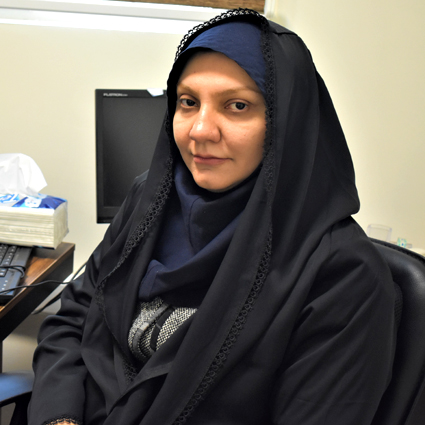 Dr Fereshteh Azadi Parand (Associate Professor)
Dr Fereshteh Azadi Parand (Associate Professor)
PhD in Computer Engineering from Iran University of Science & Technology
Faculty Member & Director of Technology and Information Center
Email Address: parand@atu.ac.ir
Contact No.:+98214839 4322
Research Interests: Software Engineering.
View CV
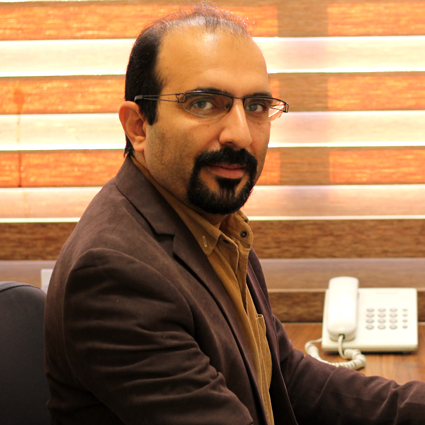 Dr Mohammad Bahrani (Assistant Professor)
Dr Mohammad Bahrani (Assistant Professor)
PhD in Computer Engineering from Sharif University of Technology
Faculty Member & Director of Computational Science Research Group & Head of the Computer Department
Email Address: bahrani@atu.ac.ir
Contact No.:+9821 4839 4320
Research Interests: Artificial Intelligence.
View CV
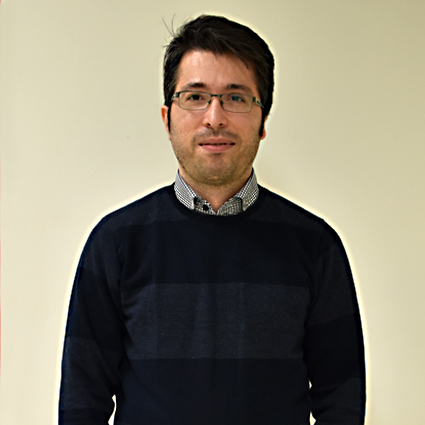 Dr Farzam Matinfar (Assistant Professor)
Dr Farzam Matinfar (Assistant Professor)
PhD in Computer Engineering from University of Isfahan
Faculty Member
Email Address: f.matinfar@atu.ac.ir
Contact No.:+9821 4839 4321
Research Interests: Semantic Web, E-Commerce, Evolutionary algorithms.
View CV
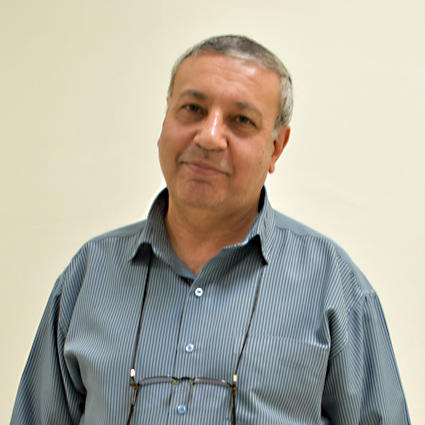 Dr Hassan Rashidi )Full Professor(
Dr Hassan Rashidi )Full Professor(
PhD in Computer Science from the University of Essex, UK
Faculty Member & Deans Office, Faculty of Statistics, Mathematics, and Computer
Email Address: hrashi@atu.ac.ir
Contact No.:+9821 4839 4324
Research Interests: Software Engineering, Programming Languages, Simulation, Decision Support Systems, Optimization Algorithms.
View CV
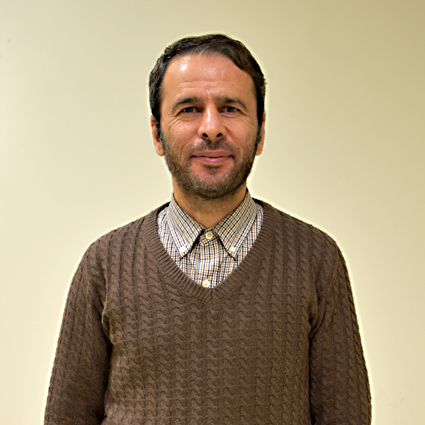 Dr Hossein Teimoori Faal (Assistant Professor)
Dr Hossein Teimoori Faal (Assistant Professor)
PhD in Computer Science from Charles University, Prague, the Czech Republic
Faculty Member
Email Address: hossein.teimoori@atu.ac.ir
Contact No.:+9821 4839 4306
Research Interests: Discrete Modelling and Algorithms.
View CV
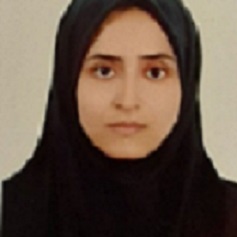 Dr. Zahra Rahimi(Assistant Professor)
Dr. Zahra Rahimi(Assistant Professor)
PhD in Computer from the University of Amir Kabir
Faculty Member
Email Address:
Contact No.:+9821 4839 4325
Research Interests: : Natural language processing, machine learning, large language models, artificial intelligence in medicine



